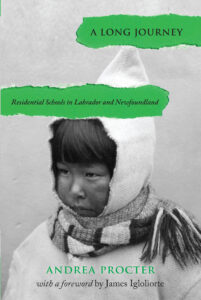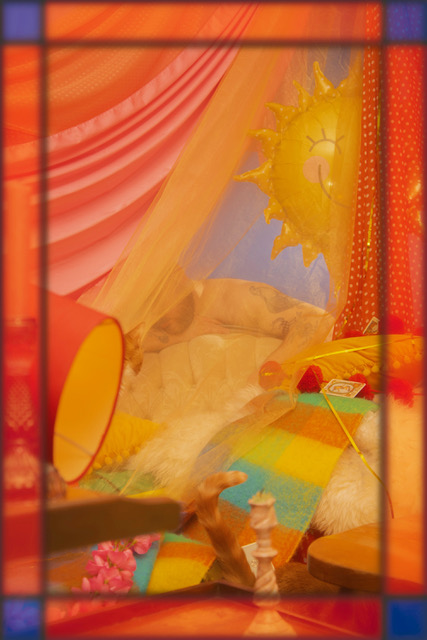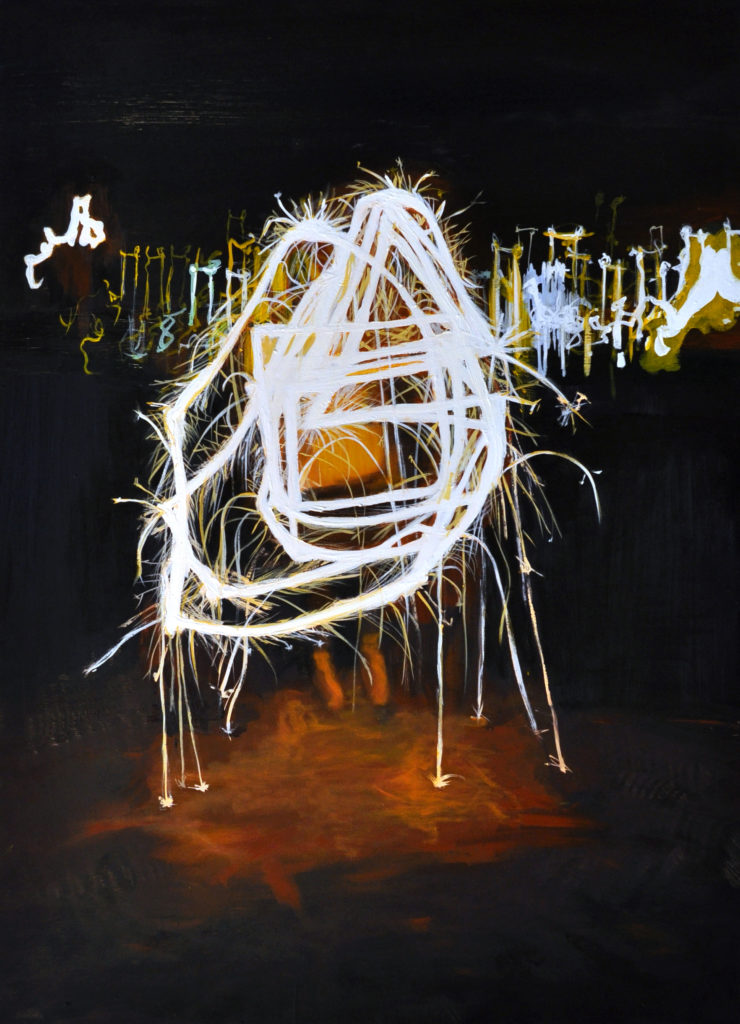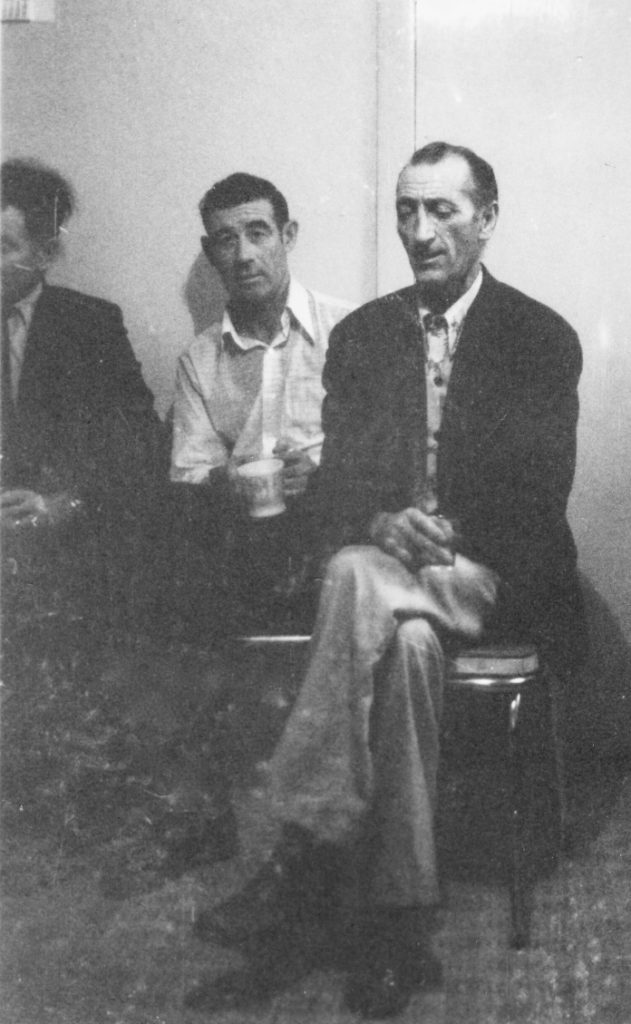I think the story is best told by focusing on individuals: An interview with Dr. Andrea Procter
October 2020
By Darrell Roberts
In 2018, as part of the Newfoundland and Labrador Healing and Commemoration Project, residential school survivors from Labrador and Newfoundland participated in community sessions where they had the opportunity to talk about their experiences in a safe and empathetic environment. Each session began with an open community feast, followed by two days of group and individual discussions where former students told their stories. Under the lead of Nunatsiavut retired judge James Igloliorte, and on the recommendation of the Nunatsiavut Government and the NunatuKavut Community Council, Memorial University anthropologist Dr Andrea Procter was retained as a historian for the Project. Her new book, A Long Journey: Residential Schools in Labrador and Newfoundland, has just been published by ISER.
What was it like to attend those sessions?
[They] were each very different from one another. We always held a public feast first, and each community approached it in their own way with performances, prayers, and always lots of food. Over the next few days, we organized various ways of inviting former students to talk with us, always with mental support staff in attendance. In some places we held healing circles, and in others we sat down with former students individually to have more intimate conversations. The feel of each session was quite different. In some gatherings, people shared funny memories and laughed together, while in others, people sobbed as they recounted painful times. I found the sessions devastating, but also hopeful. [Ministerial Special Representative] Jim Igloliorte always seemed to manage to bring the conversation around to ways in which people had survived and overcome challenges, but it was really hard for all of us to have these conversations. It also made me realize how few mental wellness supports exist in coastal communities in Labrador, and how people have just been suffering on their own for all these years.
How did you feel about embarking on a project that is so important to so many people?
In my years of working in Labrador, I had always heard a lot about people’s experiences with the boarding schools, and the huge impact they had on families, so I knew how important this issue was for everyone. This made the research both fascinating and terrifying. The weight of responsibility was tremendous — I knew I had to produce something that was worthy of the students and their families, and that fully reflected their experiences.
How did your experience as an anthropologist inform your work on this project?
All research with Indigenous communities these days is — or should be —community-driven research. My first experience in doing my own research 22 years ago focused on a collaborative project in Arviat, Nunavut. Since then, all my work in Labrador has been driven by what Indigenous communities have identified as their research needs and priorities. This residential school research followed the same path, in that it was Inuit former students who had requested a historical account.
Putting this book together, I relied on a group of former students and other experts to discuss the approach and review chapters to make sure that it reflected people’s experiences. I think this kind of collaborative scholarship is crucial in recounting and interpreting stories, especially in regard to Indigenous histories. As an anthropologist, I am always listening for people’s stories and experiences. From the very beginning of these boarding schools, the organizations that established them — the Moravian Mission and the International Grenfell Association — had publicized their account of these institutions in their magazines, books, and on their lecture tours. The voices and the stories of the students themselves have not been shared to the same extent, so it was very important to us that we addressed this imbalance by highlighting as many student voices as possible in the book. The community events were therefore a foundational part of the research.
The stories presented in A Long Journey range from humorous to heartbreaking. How did you approach the emotional complexity of the subject matter?
It was sometimes difficult to incorporate widely different stories into the book. But I tried to honour everyone’s experience, and not overshadow good experiences by including only the most shocking stories. I think the story is best told by focusing on individuals, and by recognizing that people experienced the schools in various ways. Stories of children who had been taken from their parents and who felt utterly alone in the institutions without love or family support were the hardest ones for me to hear. As a mother, these stories broke my heart over and over again. But I also was deeply inspired by Inuit who had voiced their concerns about the boarding schools throughout the 20th century, and who had worked to improve the educational system. People like Rose Pamak from Nain challenged the system and fought for more Inuit control over Inuit education.
In A Long Journey, you discuss Prime Minister Justin Trudeau’s apology to Newfoundland and Labrador residential school survivors. The provincial government has yet to apologize for its role in the operation of these schools. In your view, what responsibility does the provincial government have to apologize to these former students?
The provincial government supported these institutions financially and through its Department of Education. I think that the former students would like to hear apologies from the provincial government, the Moravian Church, and the International Grenfell Association.
How do the stories in this book differ from stories about residential schooling in other parts of Canada?
The residential schools in this province have their own unique history in the way that they were established, but at their core, they were very similar to residential schools across the country. The intent of all of the schools was to separate the children from the influences of their families and Indigenous communities and to teach them instead of the cultural perspectives and beliefs of the dominant society. The national narrative about residential schools in Canada has focused almost exclusively on the traumatic experiences of children, which of course is dramatic and forces us all to recognize our responsibility in ensuring that this does not happen again. However, this is not the only story to be told. In Labrador, students and their communities were not passive victims in the school system — they actively confronted and boycotted the schools when the system wasn’t providing the education or the care needed. We need to celebrate and highlight these stories! Labrador Inuit have long been leaders in re-gaining control over the education of their children.
Darrell Roberts is a journalism student at the University of King’s College in Halifax. Originally from St John’s, he recently graduated from Memorial University with a BA in English and Communication Studies. He enjoys reading and writing about the latest in culture and politics.




